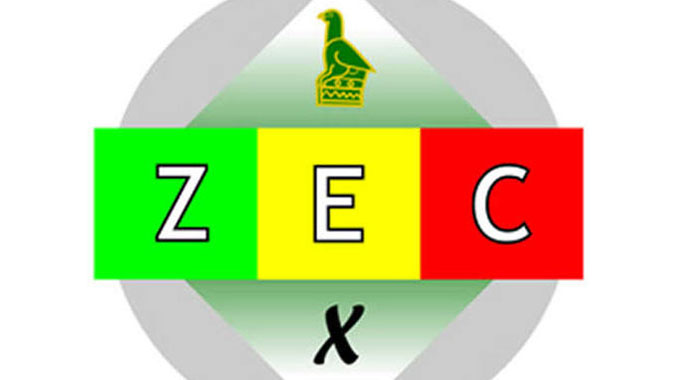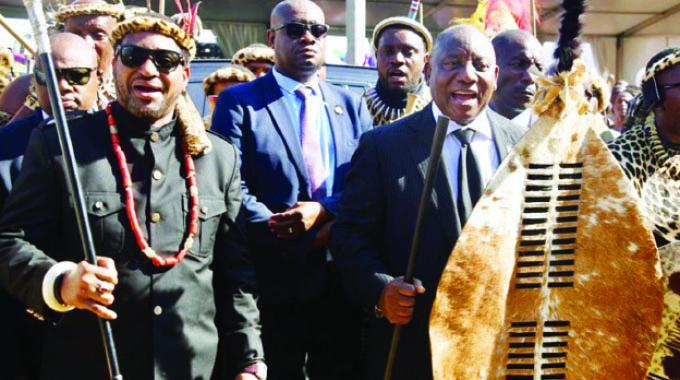SADC PF wants barriers against women in agriculture to fall

Moses Magadza in Arusha, Tanzania
The chairperson of the Regional Women’s Parliamentary Caucus (RWPC) of the SADC Parliamentary Forum has called for urgent intensified efforts and transformative action in the SADC region to remove barriers thwarting women’s empowerment and hindering the achievement of gender parity.
Honourable Regina Esparon of Seychelles made the call at the official opening of the SADC PF’s 53rd Plenary Assembly Session that began in Arusha, Tanzania on 3 July, 2023.
She told delegates from 12 SADC Member States who included the guest of honour, Her Excellency President Dr Samia Suluhu Hassan of the United Republic of Tanzania, that the plenary presented a crucial opportunity to introspect on strides made in promoting gender equality, empowering women, and championing women’s rights within nations, across the region and on a global scale.
She contended that said despite global efforts, women continue to face discrimination and remain significantly underrepresented in politics and decision-making roles.
She said recent data on Sustainable Development Goal 5 showed the world is still off track to achieve gender equality by 2030.
The Global Gender Gap Report 2023, released by the World Economic Forum, shows the gender gap closed to date is only 68.2% for Sub-Saharan Africa, compared to 76.3% for Europe.
“Furthermore for political participation, the gender gap has only been closed by 22.6% demonstrating that there is momentous effort to be made to empower women for political careers,” she said.
Esparon cited the UN Women’s Gender Snapshot for 2022, which assesses progress in gender equality across the 17 SDGs, and noted that at the current pace, it would take 286 years to eradicate discriminatory laws, and close the gaps in the legal protections for women and girls.
“However some SADC Member States have made commendable strides in implementing legislative and other measures to reduce gender inequality,” she conceded.
She, however, said a 2022 study on Challenges for Women Political Participation in SADC Countries by the SADC-PF revealed a perturbing reality, indicating that barriers identified over the past decade, which hindered women’s progress towards top positions in politics and decision-making at all levels, persist.
“Emerging challenges such as cyber violence against women and girls, gender injustices resulting from climate change, and prolonged conflicts such as mass migration and internal displacements perpetuate gender gaps,” she said adding that the situation is bound to worsen unless these novel challenges are addressed.
She said the RWPC welcomed the SADC Model Law on Gender-Based Violence which gives a broad definition to GBV, such that it can encapsulate all forms of violence against women, including cyber violence.
“As parliamentarians, we have a unique opportunity to accelerate gender equality and empower women in the SADC region, by advocating the adoption of relevant model laws, which have been adopted by the SADC-PF to protect the rights of women and girls,” she said.
These laws include the SADC Model Law on Eradicating Child Marriage and Protecting Children Already in Marriage, as well as the SADC Model Law on Gender-Based Violence.
Esparon said in Africa, women continue being underrepresented in key decision-making roles with the African Gender Barometer 2021 revealing that women hold only 22% of cabinet positions, 12% of top party functionary positions, and a mere 7% of high-level political executive positions, including presidents, vice presidents, prime ministers, and deputy prime ministers.
She said the upcoming wave of presidential and parliamentary elections in the next two years offers the SADC region a chance to translate promises into action.
“There is need for women to be equally represented as candidates for election as MPs, as Cabinet ministers, and even as stakeholders coordinating or observing the election process. Let us ensure that gender equality is not just rhetoric but a tangible reality in our respective countries and the entire SADC region,” she urged.
She congratulated the United Republic of Tanzania for setting a remarkable example with appointing Hassan as the country’s President.
“Her esteemed leadership serves as an inspiration and testimony to the progress we can achieve when women are given the opportunity to excel in the highest positions of power,” she said.
Turning to the theme of the assembly, “Modernizing Agriculture for Food Security and Youth Employment in SADC: Role of Parliaments,” she said it holds great significance for women in the region.
“Food insecurity remains a critical challenge affecting women and children in particular, due to factors such as climate change-induced droughts and floods.
According to a Food and Agricultural Organisation report on “The Status of Women in Agrifood systems” this year, 66% of women in Sub-Saharan Africa are employed in Agri-food systems.
“By prioritising agricultural modernisation, we can address the unique barriers faced by women in the agricultural sector. This will empower women, not ensuring food security alone, but also nutritional sufficiency, and economic benefits, in the SADC region,” the MP said.
Agriculture is the foundation of most economies, supporting the livelihoods of the majority of the region’s population and women’s vital role in the agricultural sector, especially in rural areas, cannot be overstated, she emphasised.
“They are the primary agro-food producers, responsible for household food security and nutrition, and also represent a significant portion of the workforce in commercial agriculture.”
She said despite women’s vital role in agriculture, they often experience gender-based discrimination which hinders their productivity, economic empowerment and opportunities.
These barriers including limited access to credit, resources, and land rights hinder women while factors such as customary land tenure systems, cultural norms, discriminatory practices, and legal frameworks contribute to unequal land access and control for women compared to men, Hon Esparon noted.
“As parliamentarians, it is our duty to dismantle these barriers and establish an enabling environment that empowers women in agriculture in our region,” she declared and called for the adoption of gender-responsive agricultural policies to address the unique challenges faced by women in SADC agriculture, particularly smallholder farmers.
She said empowering women in agriculture has significant potential to improve food security, reduce poverty, and drive sustainable development.
“We must prioritise policy development and implementation that specifically addresses gender disparities, while providing targeted financial and technical support to women farmers.”
Hon Esparon said investment in gender-sensitive agricultural services, training programmes, and initiatives promoting women’s land rights, technology adoption, and access to resources, is crucial.
Additionally, concerted efforts are needed to eliminate gender-based violence and discrimination, enabling women’s full participation and benefit from agriculture.
She said modernising agriculture requires investment in innovative technologies, research and development.“As we embrace the digital era, it is crucial to ensure that women are not left behind. We need to bridge the digital gender divide, by promoting digital literacy and providing access to information and communication technologies that can enhance productivity and market opportunities for women farmers,” the legislator told her audience.
She advocated for women to be lifted and included in agricultural education up to tertiary level.
“The female youth must be drawn towards agricultural education so that our best minds remain in Africa to work in the modernisation and sophistication of agriculture, so that we can produce more efficiently, in a greener way, and with less labour intensiveness.”
She added: “Climate change poses significant threats to food security and livelihoods and women often find themselves at the forefront of climate change impacts, yet they possess invaluable traditional knowledge and skills that can contribute to climate-resilient agriculture. We must be deliberate in supporting women’s participation in climate change adaptation and mitigation strategies, providing them with the necessary tools and resources.”
She said parliamentarians have crucial roles in advocating for policy reforms, mobilising resources, and fostering multi-stakeholder partnerships that prioritise women’s needs and aspirations in agriculture.
“I reiterate that gender equality is not a women’s issue, but a human rights issue. This calls for us all to come together as women and men of SADC region, to foster harmonious collaboration in building a society where women and girls are empowered, their rights are safeguarded, and their voices reverberate with influence,” Esparon said.










Comments